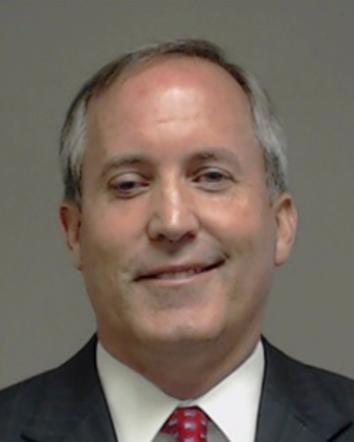Texas Attorney General Ken Paxton is not having a great summer. In August, Paxton was indicted on security fraud charges and illegally acting as a securities broker, denying the former but copping to the latter. Shortly after, Paxton was hit with a contempt of court hearing for barring state agencies from recognizing same-sex unions—despite the Supreme Court’s mandate that gay and straight couples be treated equally under the law. (An outspoken opponent of civil rights for gay people, Paxton all but encouraged Texas clerks to deny licenses to same-sex couples following the ruling.) Paxton quickly relented, persuading the judge to call off his hearing by promising to comply with the high court’s decision.
That capitulation, it turns out, was really just a feint. After promising to comply with federal law, Paxton pulled an about-face, actively fighting to prevent a lesbian from inheriting her dead partner’s estate. The surviving spouse, Sonemaly Phrasavath, lived with her partner, Stella Powell, in Texas for nearly eight years. In 2008, they held a wedding ceremony and signed affidavits declaring themselves to be in a domestic partnership. They presented themselves as married to friends and family. Under Texas law, they would have been in a legal common-law marriage—if they were straight. But because they were gay, the state refused to recognize their relationship.
Powell died of colon cancer in 2014, and her relatives attempted to deprive Phrasavath of any inheritance. Phrasavath asked a court to recognize her relationship as a marriage, citing the Supreme Court’s Obergefell decision affirming gay people’s fundamental right to wed. Paxton filed to motion to block Phrasavath from getting any part of Powell’s estate—or from being recognized as her common-law spouse.
Predictably, Paxton claims that he isn’t violating Obergefell but simply applying it correctly. He argues that the decision cannot apply retroactively, “to reach back in time and declare” the Powell-Phrasavath union to be a valid common-law marriage. He is wrong. The Supreme Court has long held that rulings which protect “primary, private individual conduct”—like, say, marriage rights—must apply retroactively. Loving v. Virginia was one of those rulings. Obergefell, as the Justice Department has recognized, is another.
What’s especially bizarre about Paxton’s legal theory is that it’s disproved by Obergefell itself. Paxton argues that, because Powell is already dead, the state cannot recognize her relationship as a valid marriage. Yet that was exactly what James Obergefell asked the Supreme Court to do. John Arthur, Obergefell’s husband, died when Ohio still barred any recognition of same-sex marriage, and he was thus listed as unmarried on his death certificate. Obergefell sued to have his name retroactively placed on Arthur’s death certificate as Arthur’s husband. Paxton may be stunned to hear this, but the Supreme Court ruled in Obergefell’s favor. If the court can reach back in time and declare Arthur to be legally married, Texas can reach back in time and do the same for Phrasavath.
Eventually, of course, Paxton will comply with Obergefell—probably after a judge threatens another contempt of court hearing. Until then, he’ll continue to get away with his favorite pastime: Demeaning gay Texans in mourning. Last time, Paxton illegally ordered the Texas Department of State Health Services to list a dead gay man as unmarried on his death certificate, notwithstanding his lawful marriage to a man in New Mexico. This time, he’s interfered with a grieving widow’s private family dispute—by arguing that she does not deserve a constitutionally protected fundamental right. For an attorney general, Paxton has a lot of trouble staying on the right side of the law.
